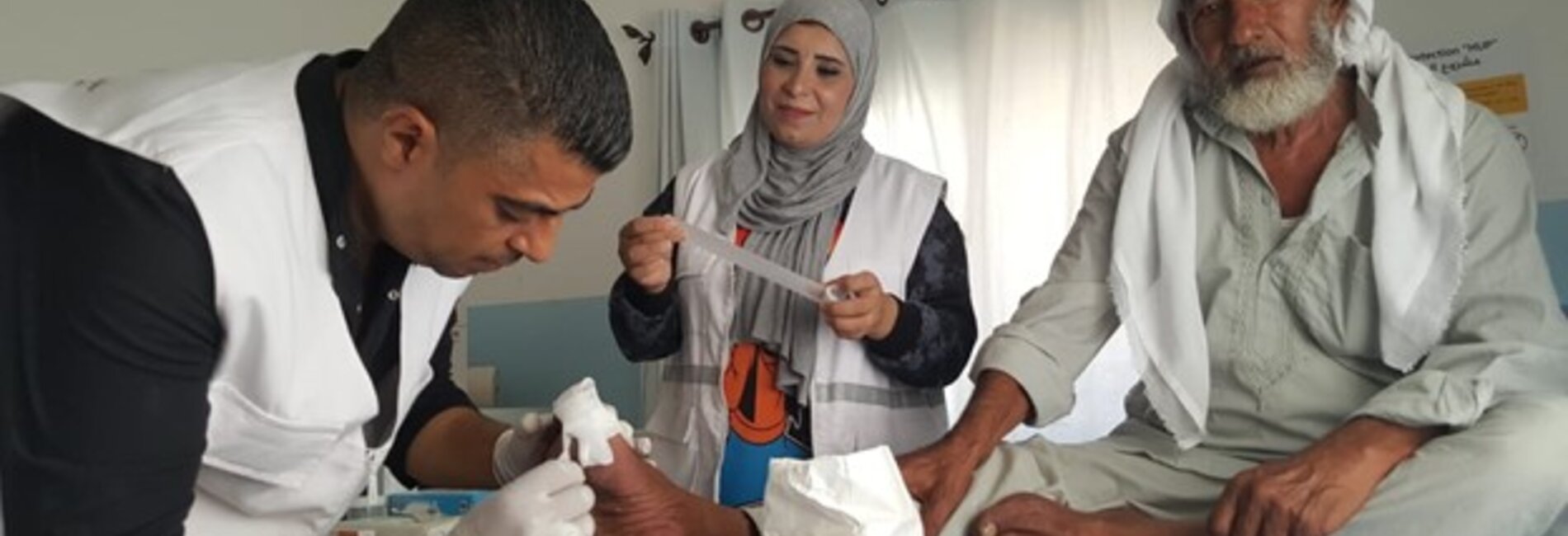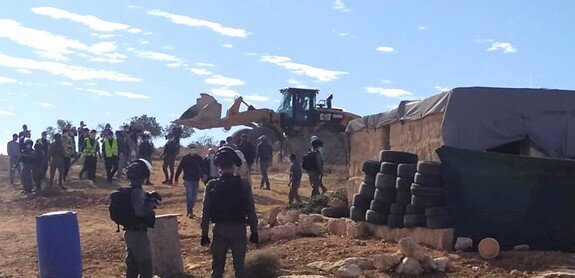Dancing the pain away: providing healthcare through mobile clinics
An occupied Palestinian territory Humanitarian Fund Success Story
“If it weren’t for the mobile clinics, I would have lost my foot,” says Nabil Al Amour, a 63-year-old from At Tuwani. “I would have suffered severe health consequences. If left untreated, my condition could be fatal.”
At Tuwani is a small town in the southern West Bank, where Nabil is known for his iconic dance moves. “I am the first one to be invited to weddings and parties in town,” he explains jokingly. “You could say that I am the life of the party!”
During Ramadan 2021, Nabil’s lively spirit was hit with major health-related setbacks. He suffered from a severe stroke that resulted in nerve dysfunction and general weakness in the right side of his body. Also having chronic diabetes, Nabil developed the diabetic foot syndrome, an infection that reduces patients’ ability to feel pain in their feet.
“I could not move for three months. My whole body ached, and I felt weak and lethargic,” he says in a grave tone. “Commuting to the nearest hospital (15 kilometers away) is challenging. The hospital ride would take me two hours, at best; many times, the roads are closed due to military drills. Other times, I would choose not to visit the hospital because of the settler violence on the way. Living in At Tuwani is challenging,” Nabil explains.
At Tuwani’s few hundred residents struggle to access water, electricity, education and transportation. They are also among about 150,000 Palestinians who suffer from limited or no access to primary health care and need mobile clinic services. This is primarily because of the restrictive Israeli planning regime, which prevents the construction of the necessary facilities, as well as the prevailing movement restrictions, which impede access to the main service centres.
To mitigate this, CARE provided throughout 2021 essential health services to 42 vulnerable communities through mobile clinics and teams. Supported by the occupied Palestinian territory Humanitarian Fund (OPT HF), it did so with a local partner where they provide both curative and preventive medical services on site, covering women’s health care (including antenatal and postnatal care), sexual and reproductive health care, family planning consultations, general practice care, health awareness-raising information, basic laboratory tests, home visits, children’s health care, and psychosocial services.
”The physician who treated me was patient and took his time not only to treat my wound but to educate me on my condition and teach me how to dress my wound,” he recalls. “After one week of treatment, the infection in my foot was gone, and my whole body felt better. Now, I can dance again!” he concludes with a triumphant tone.











